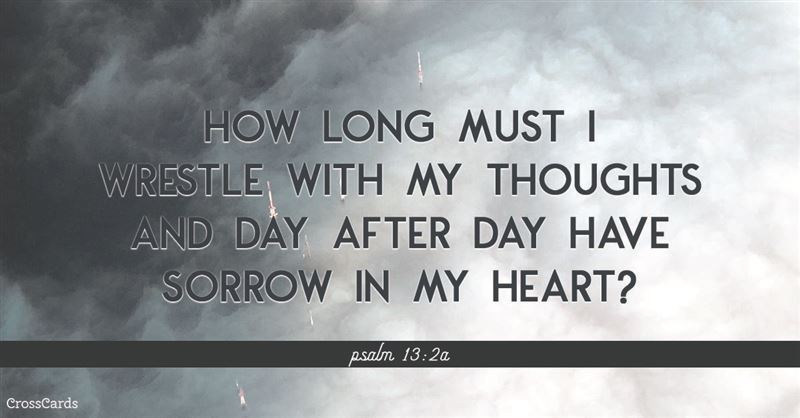The Lie of Isolation
People say time flies when you’re having fun, but when things shift into a minor key, life seems to move in slow motion. That's what happened in March when everything came to a screeching halt because of the worldwide COVID-19 pandemic. Cities, states, and counties shut down and issued stay-at-home orders for all other than those working in essential jobs and businesses. Schools closed and we were ordered to stay at home other than going out for food and household essentials (like toilet paper), medicines, or urgent/emergency medical needs. As the stay-at-home order continues we may find ourselves thinking, “I don’t know if I’m ever going to get out of these circumstances.”
David opens Psalm 13 with the question we've asked God as our isolation has dragged on and on, and on. The recurring question is “How long? How long?”
Editor's Note: The following is from the YouVersion Reading Plan "Truth For Dark Days by Alistar Begg".
David’s circumstances aren’t described, but he clearly feels forgotten and forsaken—a feeling we all can relate to. It’s akin to what we feel when we lose a loved one.
To be isolated from human relationships is, without question, crushing, but what David writes of here is even more significant. He’s expressing a feeling of isolation from God, Himself. In his emerging depression, we discover that his perception, as is often the case with our own, does not reflect reality. What he feels to be true does not align with what he knows to be true.
The psalmist’s sentiment is shared by many of God’s people throughout Scripture. In Isaiah, God’s exiled people cry out, “The Lord has forsaken me; my Lord has forgotten me” (Isaiah 49:14). Christian pilgrims—genuine followers and servants of Jesus—have occasionally felt like saying, “I believe the Lord has actually forgotten us. If He has not forgotten us, if He was still with us, how would we be in this predicament? If He truly was watching over us, surely we would not have to endure these trials.”
Christians, let’s not believe the lie of isolation that our emotions can feed us. We can find rest in God’s comforting response to His forgetful people:
“Can a woman forget her nursing child, that she should have no compassion on the son of her womb? Even these may forget, yet I will not forget you. Behold, I have engraved you on the palms of my hands; your walls are continually before me” (Isaiah 49:15–16).
God’s care for His children is like the sun: it’s constant. Even when the clouds obscure it, it’s still there. It’s always there.
Will we trust in God’s constancy today? Amidst our feeling forsaken, God looks at His hands, engraved with each and every one of our names, and He says, “There you are. I have not forgotten you.”

 RSS Feed
RSS Feed